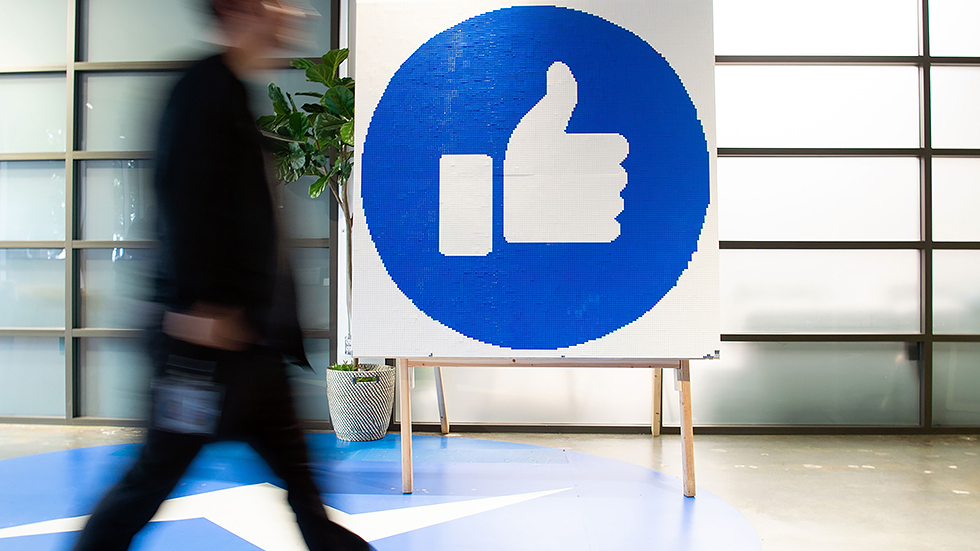Hillicon Valley — Facebook shutters its facial recognition system

Today is Tuesday. Welcome to Hillicon Valley, detailing all you need to know about tech and cyber news from Capitol Hill to Silicon Valley. Subscribe here: digital-stage.thehill.com/newsletter-signup.
Follow The Hill’s cyber reporter, Maggie Miller (@magmill95), and tech team, Chris Mills Rodrigo (@millsrodrigo) and Rebecca Klar (@rebeccaklar_), for more coverage.
Facebook announced it will be shutting down its facial recognition system over concerns about the technology as a whole. Along with the update, the company said it will delete the templates for the more than 1 billion people who opted into the setting.
Meanwhile, the Center for Countering Digital Hate released a new report identifying the “Toxic Ten,” or the 10 publishers responsible for nearly 70 percent of interactions with climate change denial content on Facebook. The report also found Facebook, still deeply embroiled in the fallout from leaked documents, failed to label 92 percent of posts containing climate misinformation from the top spreaders.
Let’s jump in.
Tag it yourself

Facebook is shutting down its facial recognition system and will delete more than 1 billion people’s individual facial recognition templates, the company said Tuesday.
Meta, the new name of Facebook’s parent company, said the decision was made due to “growing concerns” about the use of facial recognition technology as a whole.
The concerns: “There are many concerns about the place of facial recognition technology in society, and regulators are still in the process of providing a clear set of rules governing its use. Amid this ongoing uncertainty, we believe that limiting the use of facial recognition to a narrow set of use cases is appropriate,” Jerome Pesenti, Facebook’s vice president of artificial intelligence, said in a blog post.
Facebook’s Face Recognition system will be shut down in the “coming weeks” as part of a company-wide move to limit the use of facial recognition in its products, Pesenti said.
Facebook will also delete the templates for the more than 1 billion people — more than a third of the platform’s daily active users — who opted into the Face Recognition setting, according to the blog post.
What will change (for now): Facebook’s facial recognition technology was used to allow users the option to be automatically notified when they appear in photos or videos posted by others and suggest users “tag” photos and videos they post. Those features will no longer be available as part of the update.
The change will also impact Facebook’s Automatic Alt Text technology that is used to create image descriptions for people who are blind or visually impaired. After the change, the feature will still be able to recognize how many people are in a photo, but it will no longer attempt to identify each person in the photo with facial recognition, according to the blog post.
More misinformation woes

Breitbart, the conservative news and opinion website, played an outsized role in the amount of content downplaying or denying climate change being circulated on Facebook, according to a new report.
The ‘Toxic Ten’: Breitbart was among 10 publishers responsible for nearly 70 percent of interactions with climate change denial content on the social media platform, according to a new study from the Center for Countering Digital Hate (CCDH). The Washington Post first reported on the study.
The study, which dubbed the top spreaders of climate-change-denying information the “Toxic Ten,” found a massive number of articles and posts from organizations tied to foreign governments or with fossil fuel interests and partisan domestic agendas in the United States.
Facebook under fire: Under fire from whistleblowers and public officials, Facebook has in recent months pledged to fight misinformation in a number of areas, from climate change to vaccine science to election integrity.
One such promise the company made was to add informational labels to posts about climate. The CCDH study found that only 8 percent of the posts they surveyed containing misinformation about climate change sported such a label, however, according to the Post.
COMING TO A ZOOM NEAR YOU
Zoom will start showing ads to users on the video conferencing platforms’ free model as part of a new pilot program, the company said Monday.
For the initial pilot program, ads will only be shown on the browser page users see once they end their meeting using the “free Basic” model.
Only free Basic users will see the ads if they join meetings hosted by other free Basic users, according to Zoom’s blog post.
“There is one thing we want to make very clear: as noted in our Privacy Statement, we will not use meeting, webinar, or messaging content (specifically, audio, video, files, and messages) for any marketing, promotions, or third-party advertising purposes,” Zoom’s chief marketing officer, Janine Pelosi, wrote in the blog post.
MOVING ON OUT
Yahoo announced it is ending its services in China, more than 20 years after it entered the country and on the same day a data protection law takes effect in the world’s second largest economy.
“In recognition of the increasingly challenging business and legal environment in China, Yahoo’s suite of services will no longer be accessible from mainland China as of November 1,” according to a statement from a Yahoo spokesperson.
“Yahoo remains committed to the rights of our users and a free and open internet. We thank our users for their support,” the spokesperson added.
Small businesses get a cyber boost

The House on Tuesday approved two bills to strengthen the cybersecurity of small businesses, which have faced escalating threats during the COVID-19 pandemic.
The Small Business Administration (SBA) Cyber Awareness Act would require the SBA to issue a report on its cybersecurity capabilities and notify Congress in the event of a cybersecurity breach potentially compromising sensitive information.
The legislation, sponsored by Reps. Jason Crow (D-Colo.) and Young Kim (R-Calif.), was previously approved by the House in 2019 but failed to be signed into law during the last Congress. It was unanimously passed Tuesday by a vote of 423-0.
The House also passed, by a vote of 409-14, the Small Business Development Center Cyber Training Act, sponsored primarily by House Homeland Security Committee cyber subcommittee ranking member Andrew Garbarino (R-N.Y.).
The bill would establish a cybersecurity counseling certification program to help existing Small Business Development Centers better assist businesses with cybersecurity needs.
TAKING CARE OF BUSINESS
The largest office landlord in San Francisco said Facebook and TikTok parent company ByteDance are looking to expand their operations in the Bay Area.
“Facebook is looking for 700,000 additional square feet. And ByteDance is searching for approximately 250,000 to 300,000 square feet,” said Owen Thomas, CEO of Boston Properties, the San Francisco Chronicle reported.
A spokesperson for Facebook told the newspaper they would not comment on rumors.
“We are always evaluating our facilities and real estate needs, but we don’t comment on rumors,” Facebook spokesperson Chloe Meyere said.
BITS AND PIECES
An op-ed to chew on: Now is the time to take stock of our cyber defenses
Lighter click: Scotland the brave
Notable links from around the web:
FBI warns that ransomware scammers are timing hacks to target big business deals (CyberScoop / Tonya Riley)
Another Apple workers says the company retaliated against her (The New York Times / Kellen Browning)
The booming underground market for bots that steal your 2FA codes (Vice Motherboard / Joseph Cox)
One last thing: A pre-election takedown

Facebook removed almost 1,000 accounts that were part of an “inauthentic behavior” network linked to the Nicaraguan government that denigrated student protestors and artificially amplified the government and ruling Sandinista National Liberation Front Party.
Meta, the new name of the parent company of Facebook and Instagram, said in its monthly report released Monday that 140 pages, 24 groups and 363 Instagram accounts were also removed as part of the effort to weed out the inauthentic network.
“In October, we removed one network in Nicaragua targeting domestic audiences in that country. We have shared information about our findings with industry partners, researchers and policymakers,” the company said.
The news of the takedown comes just days before Nicaraguan President Daniel Ortega runs for a fourth consecutive term in the nation’s Sunday election. The U.S. has blasted the election as a “sham” over Ortega’s banning of opposition parties from participating in the election.
That’s it for today, thanks for reading. Check out The Hill’s technology and cybersecurity pages for the latest news and coverage. We’ll see you Wednesday.
Copyright 2023 Nexstar Media Inc. All rights reserved. This material may not be published, broadcast, rewritten, or redistributed. Regular the hill posts







